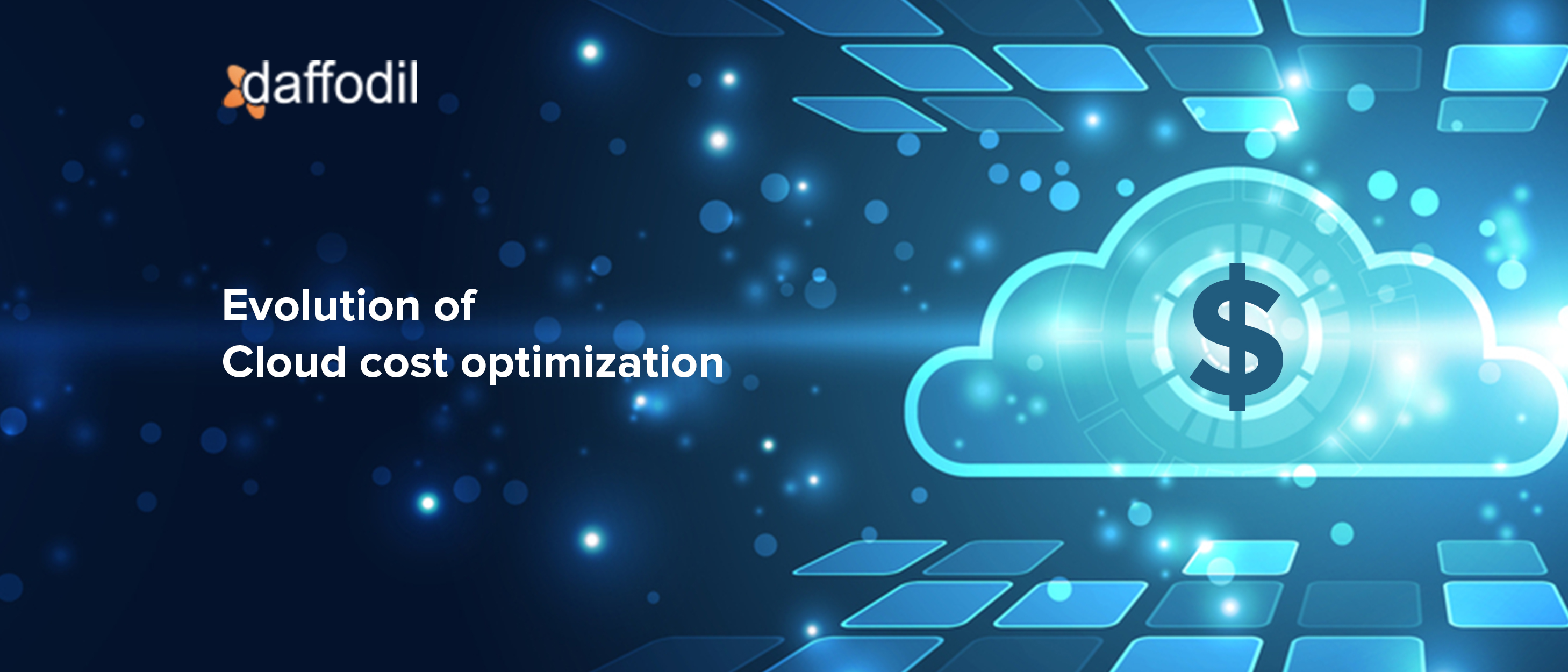
Business scalability, accessibility, and cost efficiency are just some of the often-touted economic benefits of cloud computing. Furthermore, these benefits transcend economic turbulence to a great extent, simply by enabling businesses to access computing resources whenever they need them. It also explains why cloud computing is the fastest-growing computing model, with global revenues expected to reach $1 trillion by 2026.
However, the realities of cloud adoption and how it results in financial growth are not that simple. Nearly a third of cloud spending is wasted on unused or underutilized resources, negating the economic benefits. This occurs due to the trial-and-error mindset without planning the cloud migration of where it will head your business in reality. Therefore, in order to achieve an intelligent cloud migration journey, your business must maintain a perfect balance of scalability, speed, visibility, and transformations based on its unique needs.
The adoption of complex multi-cloud architectures and the spending growth that accompanies it, has necessitated an overhaul of cloud cost management. Thus, to maximize the business value from the cloud, this issue needs to be proactively addressed, and that’s where Cloud FinOps comes in.
In this article, we’ll discuss how cloud cost optimization has evolved and given birth to FinOps, how FinOps differs from the traditional approach to manage the cloud cost and its benefits.
What is Cloud FinOps?
Cloud FinOps is a cultural practice that helps organizations streamline their financial operations to get better visibility of cloud usage and optimize the performance of their cloud computing infrastructure.
It promotes a shared responsibility for cloud cost management among information technology (IT), DevOps, finance, and other cross-functional teams in order to improve decision-making processes and drive greater business value.
Through FinOps, organizations can better manage this shift from a centralized cloud financial management system to collaborative decision-making about the usage of IT assets. It supports the model where engineering teams develop Infrastructure-as-Code (IaC), then commit to their organizations for cloud spending. This helps organizations maintain financial accountability for cloud service, gain real-time insights and build transparency at the workplace.
According to Flexera's 2022 State of the Cloud Report, It was found optimizing the existing use of the cloud was the top initiative among surveyed organizations, and migrating more workloads to the cloud came in second. In addition, respondents informed that average public cloud spend was over budget by 13%, also cloud spending is expected to increase by 29% in the next year, and they also noted that 32% of cloud spend is being wasted.
Over allocating resources to mitigate performance risk has led to a significant increase in cloud spend. However, by implementing the Cloud FinOps framework, an organization can improve its cloud cost management and increase innovation. This discipline is not about just saving money but about generating high revenues from cloud investments using best practices.
How Cloud FinOps is Different from the Traditional method?
Lack of Visibility and Accessibility
Traditional approach:
Earlier only the finance department and the executive team used to have access to their confidential cloud cost data. The procurement team would always sign off on purchases with the finance team before any expenditure.
However, engineers and cloud architects only used to prioritize developing highly functional products regardless of the cost. They believed that exposure to cost data would affect their efficiency and divert their attention from building the best product. Therefore, engineering teams were deliberately kept from discussing cost data.
FinOps:
With the adoption of Cloud architecture, the procurement of IT assets got completely overhauled. In contrast to the traditional approach, the DevOps team now has the power to launch on-demand cloud resources. Engineering teams have become directly responsible for the majority of costs associated with the given product. In other terms, every engineering/coding decision is a buying decision. This allows engineers to have complete access to detailed cost data. Cloud FinOps provides finance accountability to every team, so each member can see how their choices affect the whole system.
Real-time Decision Making
Traditional approach:
Prior to the Cloud FinOps adoption, businesses couldn’t leverage cloud services to their full potential. It has ultimately caused severe damage to organizations such as uncontrollable cloud costs, and inaccurate business decisions leading to revenue loss. This might be due to overprovisioned resources, inaccurate reports, and unused assets
According to the recently issued 2022 State of Cloud Cost Report, 54% of businesses say that their biggest cause of cloud waste is due to the lack of insight into cloud usage, and 49% of organizations find it challenging to control cloud expenses.
FinOps:
A crucial decision can make or break an entire organization. Cloud FinOps empowers organizations to make accurate predictions and take quick action when needed based on real-time data and insights. By identifying and eliminating underutilized services, providing timely cloud usage data reports to stakeholders, and efficiently managing cloud resources, the FinOps approach helps in cloud cost optimization and increases ROI through better decision-making.
Collaboration Across Various Departments
Traditional approach:
As previously mentioned, purchasing and cost decisions were made by the finance department and the executive suite only. Whilst engineers dealt with the software development choices. For any IT requirements, they had to first inform the procurement team and then the finance team. As a result, engineering and finance became very distinct in terms of priorities, methodologies, and even languages.
FinOps:
Through FinOps, a centralized system got established that led to better cloud cost management. It allows teams to learn from each other and level up their workflow and processes. Collaboration encourages the team to try new things and this ultimately results in enhanced creativity, innovation, and efficiency.
Read More: 7 FinOps Challenges around Cloud Cost Optimization
Benefits of Implementing Cloud FinOps Practice
Cloud FinOps has become the new normal for businesses of all sizes. By implementing an effective FinOps strategy, it can provide an assortment of benefits to the cloud-based organization, such as:
1. Reduced Unnecessary Cloud Costs
The most obvious benefit of FinOps is that it can help improve your organization’s financial bottom line. By optimizing the use of cloud resources, businesses can save money on their monthly cloud bill. In addition, Cloud FinOps can help avoid over-provisioning and under-utilizing IT resources, which can lead to wasted cloud spend.
2. Improved Visibility
Another benefit of Cloud FinOps is that it can help you gain better visibility into your cloud costs. With an effective FinOps strategy, organizations can have a clear understanding of where their money is being spent and what services are being used the most. This information will prevent costly surprises in cloud billing and can also help in making informed decisions about cloud strategy.
3. Refine Overall Cloud Management Processes
In addition to reducing extra expenditure and gaining better visibility into cloud costs, a robust Cloud FinOps strategy can also help refine the overall cloud management processes. By implementing best cloud practices for resource allocation, monitoring, and automation, organizations can make their cloud infrastructure more efficient and accessible. As a result, It allows you to use your time and resources more effectively in other areas.
4. Better Decision-Making
Cloud FinOps can also help improve your decision-making processes through its data-driven approach. By analyzing how your organization’s cloud resources are being utilized and how you’re spending your money, you can make better-informed decisions about your cloud cost optimization.
5. Improved Engineers' Productivity
It allows engineers to work on their primary job that is, creating new code for a new challenge - instead of managing gazillion optimization functions and writing long reports. Using Cloud Optimization automated tools, the DevOps team can save time and focus their effort on the fast implementation of needed adjustments.
6. Accelerate Agility
Cloud FinOps helps increase an organization’s agility, scalability, and responsiveness. By automating tasks and processes, organizations can decrease the time it takes to provision and de-provision resources. It can be highly beneficial in situations where you need to quickly scale your IT infrastructure up or down due to changes in demand.
7. Better Collaboration Between Teams
By implementing Cloud FinOps, organizations can help improve collaboration across various departments and teams. When everyone is working on the same page, it gets easier to share information and coordinate activities. This collaboration helps in better decision-making, increases speed, and creates a more cohesive strategy.
Let Daffodil Help You Leverage FinOps to Maximize Your Cloud Value
While cloud adoption has unlocked innovation and agility, it is easy to lose visibility and control of costs along the way. However, with the use of a carefully analyzed trade-off between speed and quality, a thorough and comprehensive FinOps strategy can help break down the functional barriers between the various teams. It can allow CFOs and CEOs to gain tighter control over finances and free up capital for other investments.
Interested in maximizing your business value from cloud optimization? Then check out our Managed Cloud Services. Daffodil helps organizations accurately map multi-cloud spending data, assign shared costs equitably, and drive FinOps collaboration throughout your organization.





